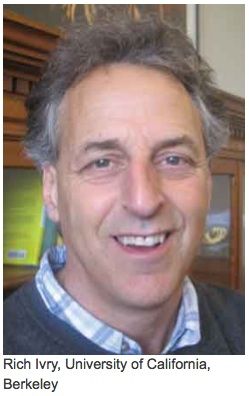
Only one thing matters, one thing; to be able to dare!
~ Dostoyevsky
This post is another collection of unfinished or limbic thoughts (see also Fuori Servizio, Undeep Thoughts, Shallow Thoughts, Weiss’ Bescheid, And One More Thing). The format, which I call by the non-word diaretic (as in diary), is not for everyone. There is no linear narrative, only a collection of ideas, speculations, and sentiments, some consisting of a single line. For more traditional essays, you may tap into any of the other posts on this blog. The title of this one means “Short Circuit” in Italian, a language that I love but do not speak. The byline betrays the emotional subtext of some of the fragments herein. So here we go. Each fragment begins boldly.
Trust is hard. Even with the best efforts to base the decision to trust on a careful analysis of the possible consequences and their respective probabilities, there remains an element of faith. The probability that another person will reciprocate (vs. betray) an act of trust is extraordinarily difficult to estimate. Individuals intending to betray trust, for example, have an incentive to hide that intention.
Trust is even harder when it requires indirect reciprocity. Suppose Oscar can benefit from a trust circle only if he trusts Jim to pass on a kindness (or money) to Dwight, Dwight in turn to trust Angela, Angela to pass it on to Creed etc. until the last person repays Oscar at a rate higher than what Oscar had put in at the outset. This looks like a forbidding proposition. At each link in the chain, the probability of trust or reciprocity is less than 1, and one lapse (distrust or betrayal) is sufficient to leave Oscar stranded. Moreover, each of these probabilities is smaller than its corresponding value in a two-person game or exchange. Direct reciprocity is a more powerful force than indirect reciprocity. It is a stronger social norm and it is easier to compute and remember the relevant information. How then can trust be maintained in a world of indirect reciprocity? This answer is, it barely can.
Ethical guidelines or norms may demand direct reciprocity, but they can hardly enforce it. A crude solution is to ask to do onto your neighbor as you would him do unto you. This golden rule is deontological at heart. It expresses an obligation without raising any hope that doing the right thing will pay off. Such hope may be found, however, in the Vedic notion of karma, or the idea that ultimately the love you get will equal the love you give. This is an uplifting idea; if you could be sure that it worked. But if there were that certainty, there would be no dilemma of trust.
In your efforts to reduce the uncertainties of whom to trust, I recommend you be wary of individuals who like to tell you about their integrity and dignity. They usually do not believe it themselves. Why should you?
Wellness. I went to the doctor to get the skinny on my rash.
Young ideology. A student from a conservative county in California told me that she is a Republican because she does not want to pay for other people. I asked who is paying her tuition and board. She said her grandparents. I said I was glad they don’t feel that way. -- Perhaps Republicans just have a better understanding of kin selection.
Organizational citizenship behavior (OCB) is essential for a business (for profit or not) to flourish. OCB comprises all those activities workers perform that are not contractually required. They are usually unpaid and often unrecognized. If performed consistently, OCB will become part of a tacit expectation that it is part of the job description, and when they are withdrawn, for whatever reason, the worker will appear to be in dereliction of duty. Conversely, a worker who consistently performs duties as narrowly defined by the contract, and then on occasion goes the extra mile, will be praised. Nobody wants to live in a world of low expectations, but those who lower them do better for themselves as individuals. You see, it's a social dilemma.
Outdoors. I went on a hike in a swampy area. It bugged me. Literally and metaphorically.
Madness. The question Are you mad at me? opens interesting and disturbing psychological possibilities. How does one answer it without escalating conflict? If the answer is “Yes,” the logical follow-up is “Why?" This requires justification, which will either contain an accusation (the other did something to stimulate madness) or defensiveness (one did get mad but has to suffer the indignity of not being able to account for it in terms of other’s provocation). If the answer is “No,” the likely follow-up is disbelief and further probing, which leads to defensiveness squared. In short, the question is rhetorical and Machiavellian; it is usually asked when one and other both know that one is mad and why. What are the alternatives? [i] Say nothing, count to 150, let it go, or perhaps mention 2 days later that madness was observed and offer to discuss it. [ii] Note the madness immediately and invite discussion without demanding it. The most unsettling (maddening, as it were) scenario is when other asks one if one is mad, and then explains to one that one has no right to be mad. The result is defensiveness cubed and other’s conviction that the evidence shows that one indeed had no right to be mad. Social games can be fun, but they can also be destructive. For those who are asked the trap question, I recommend a counter question: "Should I be?"
Spam. I ruthlessly unsubscribe from unwanted mass mail. Yet, new ones, treating me as if I had subscribed (how can I unsubscribe if I never subscribed?), keep cropping up. My “favorite” addresses me as Dear Prospective Respondent. Is it nerves, balls, or dementia that creates mails like this?

by Matisse
Ho. The word of the day is odalisque. Do not confuse with obelisk, and don't try to use it as an insult ("Ma'am, you're an odalisque!"). Leave that to Frasier Crane.
My last Schlosberg. For a dozen years, I had the role of MC at the department’s end-of-the-year dinner. The main event was the recognition of the honors students and teaching assistants and the presentation of several awards for excellence. I perceived my mission as finding a balance between humor, community feeling, and personal appreciation. This year, I chose not to MC, partly because my execution of that role had become a fixtured expectation.
I had prepared some thoughts for the students, though, that I will now share in this space.
In the January issue of the APS Observer, Professor Richard Ivry, Chair of Psychology at UC Berkeley, wrote that "psychology has been a theory-driven discipline. Even in the heyday of behaviorism, experimental work was dictated and motivated by theory. But I strongly suspect," so Ivry "that a data-driven approach will continue to assert itself in psychology, much as it has in other disciplines. [. . .] Theory will always get blown away by data."

In the January issue of the APS Observer, Professor Richard Ivry, Chair of Psychology at UC Berkeley, wrote that "psychology has been a theory-driven discipline. Even in the heyday of behaviorism, experimental work was dictated and motivated by theory. But I strongly suspect," so Ivry "that a data-driven approach will continue to assert itself in psychology, much as it has in other disciplines. [. . .] Theory will always get blown away by data."
Rich knows what he is talking about. Like you, he was a Brown honors student, receiving his degree in psychology in 1981 for the work he did under the guidance of Professor Bryan Shepp. He, like you, began with "little data." He did two experiments, one with 24 subjects and the other with 48.
I think he is overstating his prophesy about big data, and I think he knows it. On the one hand, he writes that "databases are readily available to explore just about any question, ripe for the latest mining techniques." On the other hand, he knows, or should know, that you need theory to tell you which question to ask in the first place. And when you look at the big data, you need theory to make sense of them. So in the end, Ivry quotes Nate Silver, who wrote that "The numbers have no way of speaking for themselves. We speak for them."
I suspect that theory and little data are here to stay as well. As you move from the small Brown campus and your little data sets into a larger world, I trust that you will not forget the lessons you have learned here.

Joie to the word. Allow me to introduce a concept, and a word, from the German language. Klangfrühstück literally means "sound breakfast." Sound as in sound of music. Musicians come and play, with everyone having breakfast all the while. This is a civilized concept conveying Lebensfreude (joie de vivre in American). Too many Americans skip breakfast, wolf it down, or grab it at the drive-thru. When taking a cue from the Teutons, must it always be something like Angst or Schadenfreude?
Dr. Wolf Nowack. Psychologist Wolf Nowack died this past month at age 67. He was an unsung soldier of psychology. For decades, he taught courses on social psychology, forensic psychology, and research methods at the University of Bielefeld, Germany. I knew Wolf from coursework and many runs through the Teutoburg Forest. Wolf's dedication to psychology was broad and deep. His work practices were idiosyncratic and he did not game his career to become a professor. Characters like him are vanishing from the scene as the pressures of efficiency and conformity increase. Of the lessons Wolf taught, one sticks firmly in memory. His definition of psychology was "the science of human experience and behavior." Experience and behavior, ladies and gentlemen. Savor the words and recollect them the next time you are told that psychology must "really" be about neurons, algorithms, or simulations. The definition of psychology as the science of human experience and behavior may seem quaint now, and Wolf probably picked it up from someone on whose shoulders he stood, but to me, the definition is associated with him and it remains a guiding light for my work in the lab and my perspective on the rest of the world. RIP
Folk psychology. Psychology is hard (like trust; see above). What do people really want, think, mean? B. F. Skinner and company solved the problem by ignoring it. Taking the "what-you-see-is-what-you-get" approach, they observed behavior with minimal interpretation. This is rigorous, elegant, and coherent. Yet, it leaves a feeling of dissatisfaction because it excludes too much. Humans demand to know what people really want, think, and mean; themselves included. That's where cognitive psychology was supposed to come it, but it failed on these terms (while succeeding, like behaviorism, on others). Cognitive psychology (not to mention the now popular field of cognitive neuroscience) is concerned with neuro-psycho-biological processes, and not directly with what people really want, think, and mean. After the academic demise of humanist psychology and psychoanalysis, which were approaches that looked for answers to these questions, only folk psychology is left.
Folk psychology can be studied scientifically. Such work can build an understanding of the contents of people's naive ideas about how mind and behavior work, and how these ideas are related to one another. But research on folk psychology cannot, by definition, go beyond folk psychology. It has nothing to say, for example, about whether particular folk psychological ideas are true or false.
When you study the folk psychology of what people really want, think, and mean, you can only find what people think people really want, think, and mean, but you cannot find what they really really want, think, and mean. If you want to settle for that, fine. Modesty can be a virtue.
Until you run into trouble. Consider the example of drunk speech. Do you believe it? Is it the truth? Does it reflect what the speaker really means? Or what part of him means? Folk psychology has proverbs. Children and drunks speak the truth. But folk psychology also has other theories of mind. For instance, there is a widespread conviction that people mean what they say when they speak intentionally, which to some requires control and executive monitoring.
So the drunk may or may not mean what he says. You have not come any any closer. And now you have to consider the moral implications. Suppose Jack insults Jim after a fifth of Scotch. Will Jim conclude that now he knows where he "really" stands with Jack? Or should he dismiss the insult as alcohol induced and thus an invalid reflection of the "real" Jack. Or can Jim recruit a folk psychological version of modularity theory, according to which the insult is both meant and unmeant depending on which of the many Jacks within the apparent organism one appeals to. And if so, should Jim seek moral punishment, and if so, from whom. As for Jack, if he were to apologize, how would he do it? If sober Jack apologizes for drunk Jack, the effect can only be limited (as when a parent apologizes for a child). If he gets drunk again, and then apologizes, that would be more congruent. But alas, most people (like Jim), take drunken insults more seriously than drunken apologies.
Ortgeist. If you have heard of Zeitgeist, the spirit of the times, you may be interested to learn that there's also Ortgeist, the spirit of a place. There's not much you can do about Zeitgeist, but you can move to find the right Ortgeist.
Experience. A few years ago, I wrote a commentary on a BBS paper by Herb Gintis (2007), in which I suggested that psychology, and social psychology in particular, is loathe to confront the issue of reasoning, or active thinking, head-on. When reductionism rears its head, reasoning is its first victim. From psychoanalysis to behaviorism to the contemporary priming craze, thoughts of reasoning are beleaguered. I now suspect that the issue is a broader one. Psychology does not only flee from reasoning, it flees from human experience itself. Wolf Nowack, the late psychologist at the University of Bielefeld, taught that psychology is the scientific study of experience and behavior. Behavior is hanging in there, but where is the study of experience? Social psychologists, the Stapel disaster notwithstanding, are enamored with anything they can declare to be ‘automatic’ or at least ‘implicit.’ Demonstrating automaticity or implicity (today’s nonword) is cool, sexy, and safe. It is safe because you don’t have to think about thinking (or experience). Subliminal primes are the safest implicitors (another nonword) of them all. They are, by definition, not consciously perceived or experienced.
Experience is scientifically annoying because it cannot be shared in a way that scientists can appreciate. Scientists may ask research participants to record their experiences verbally, but they, the scientists, remain perennially skeptical about people’s willingness and ability to do so faithfully. There is one good way to share experience, but scientists would have to allow their mirror neurons to get in on the action. Scientists would have to get down with the participants in the lab or in the field and do what they, the participants, do. It would require an abolishment of the scientist-participant distinction, but then, the argument goes, you won’t have science any more. Perhaps so, but you would regain access to the study of human experience. Do we really want to leave this mission to our colleagues in the comparative literature department?
Back up back-up

Back up back-up
We are still working with XXX on verifying that your XXX backups will be usable in the event of full-drive damage or loss. At this point it appears that your backups are protected by a unintentional second level of encryption, and nobody seems to know how to unencrypt it. [Our] technical staff is working the issue with XXX to determine how to get to a known-good state.
Well, not all is lost. We learned 2 new concepts: double encryption and known-good state. I will now conjure the ghost of Alan Turing and ask him to crack the enigma.




